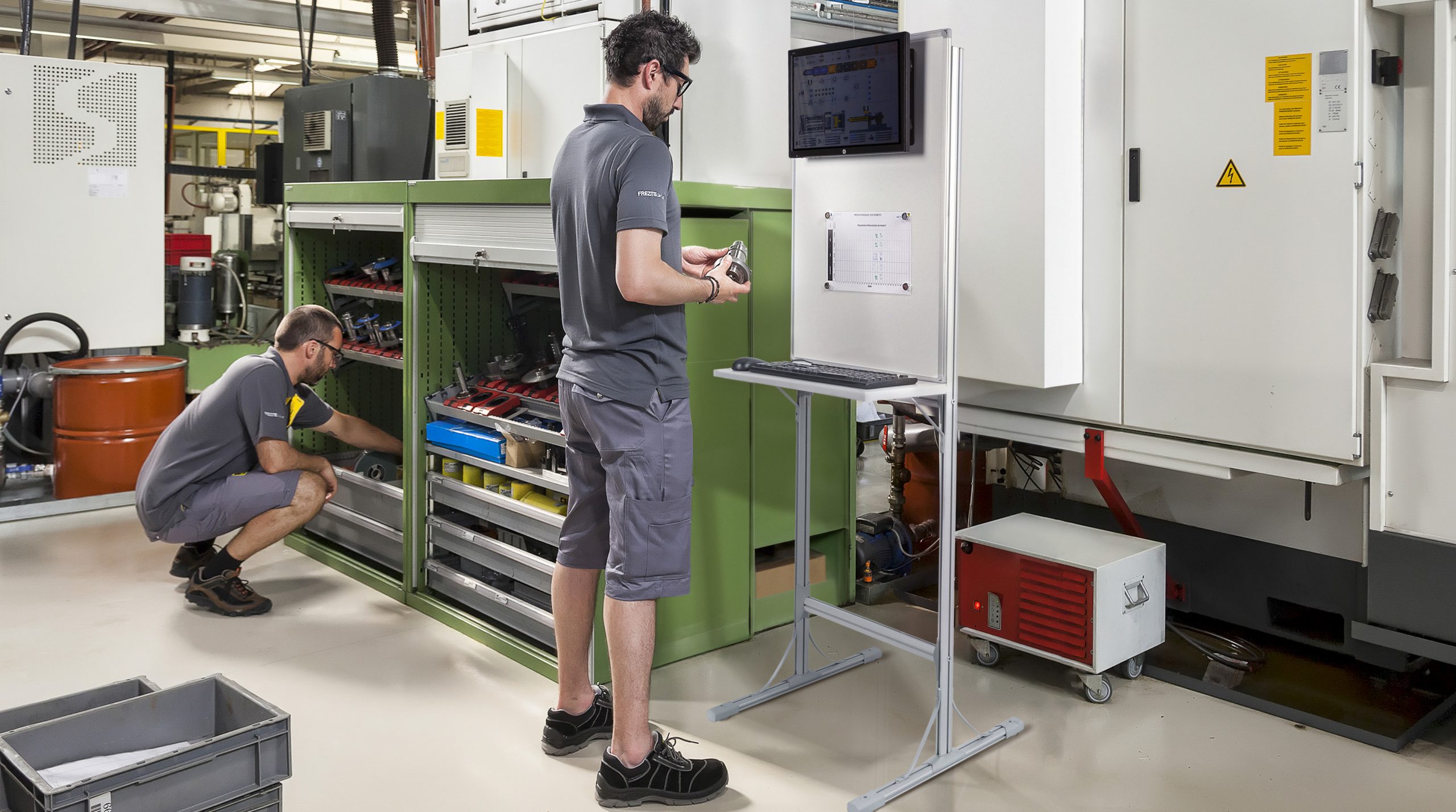
Process control refers to the methods, techniques, and systems implemented to monitor and regulate various parameters and variables within a manufacturing or industrial process. It involves the following three activities, continuously:
- Measurement: Process control begins with the measurement of relevant parameters or variables that define the process. This could include temperature, pressure, flow rate, speed, pH level, or other specific measurements depending on the process requirements. Various sensors, instruments, or monitoring devices are used to collect accurate data in real-time.
- Comparison: The measured values are compared against predetermined setpoints or desired targets to determine whether the process is operating within acceptable limits. Deviations from the desired values indicate that adjustments or corrective actions are needed.
- Adjustment: If deviations are detected, control actions are implemented to bring the process back to the desired state. Control actions can be manual or automated, depending on the level of process complexity and the availability of control systems. These actions may involve adjusting operating parameters, altering input variables, activating specific equipment or devices, or making changes to process conditions.
These can be done in an Open or Closed feedback loop control to ensure that the process is dynamically regulated, maintaining stability and performance in response to changing conditions or disturbances. Additionally, it can make use of simple manual control systems, complex automated control systems (such as the use of programmable logic controllers (PLCs), distributed control systems (DCS), or other advanced control technologies), or a combination of these.
Process control plays a vital role to achieve stable and reliable operations, reduce variations, and optimize resource utilization in various types of industries such as manufacturing, chemical processing, power generation, and food production, ensuring:
- Quality Assurance: Process control points help ensure that each step of the manufacturing process meets the required quality standards. By implementing control points at critical process stages, operators can monitor and verify that the process is executed correctly, minimizing variations and deviations that could lead to defects or non-conformities. Control points allow for real-time monitoring, measurement, and adjustment to maintain consistent product quality.
- Error Detection and Prevention: Control points enable the early detection and prevention of errors or issues in the manufacturing process. By monitoring process parameters, measurements, or specific criteria at control points, operators can identify deviations from the expected values or patterns. Early detection of errors allows for timely corrective actions, preventing the propagation of defects or substandard products further downstream.
- Process Optimization: Control points provide valuable data and insights for process optimization. By continuously monitoring and analyzing process performance at control points, manufacturers can identify areas for improvement, efficiency gains, or waste reduction. This data-driven approach allows for the implementation of process enhancements and optimization strategies to achieve higher productivity, cost savings, and overall process efficiency.
- Compliance and Regulatory Requirements: Control points are essential for meeting compliance and regulatory requirements. In various industries, specific processes must adhere to strict regulations, standards, or certifications. Control points ensure that the necessary checks, inspections, or measurements are performed to comply with these requirements. This includes maintaining records, documenting procedures, and demonstrating adherence to industry or legal standards.
- Continuous Improvement: Control points support the culture of continuous improvement within manufacturing operations. By monitoring process performance, identifying areas for improvement, and implementing corrective actions at control points, manufacturers can drive ongoing enhancements in their processes. This iterative approach to improvement ensures that the manufacturing process evolves, becomes more efficient, and remains competitive over time.
- Root Cause Analysis: In the event of process deviations or quality issues, control points serve as critical reference points for conducting root cause analysis. By examining data collected at control points, manufacturers can trace back process variables, conditions, or events that led to the issue. This facilitates the identification of underlying causes, allowing for targeted corrective actions and the prevention of similar issues in the future.
- Standardization and Consistency: Control points contribute to standardization and consistency in manufacturing processes. By establishing control points with clear procedures, specifications, and criteria, manufacturers ensure that processes are executed consistently across different shifts, operators, or production lines. This consistency helps in achieving predictable outcomes, reducing variability, and ensuring product uniformity.
Since process control points are critical for maintaining quality, detecting and preventing errors, optimizing processes, ensuring compliance, driving continuous improvement, conducting root cause analysis, and achieving standardization in manufacturing operations, the Industrial PC workstation, is an excellent product for these process control points providing the operators with the checkpoint where they can monitor, measure, and intervene as needed, contributing to overall operational excellence and customer satisfaction.
